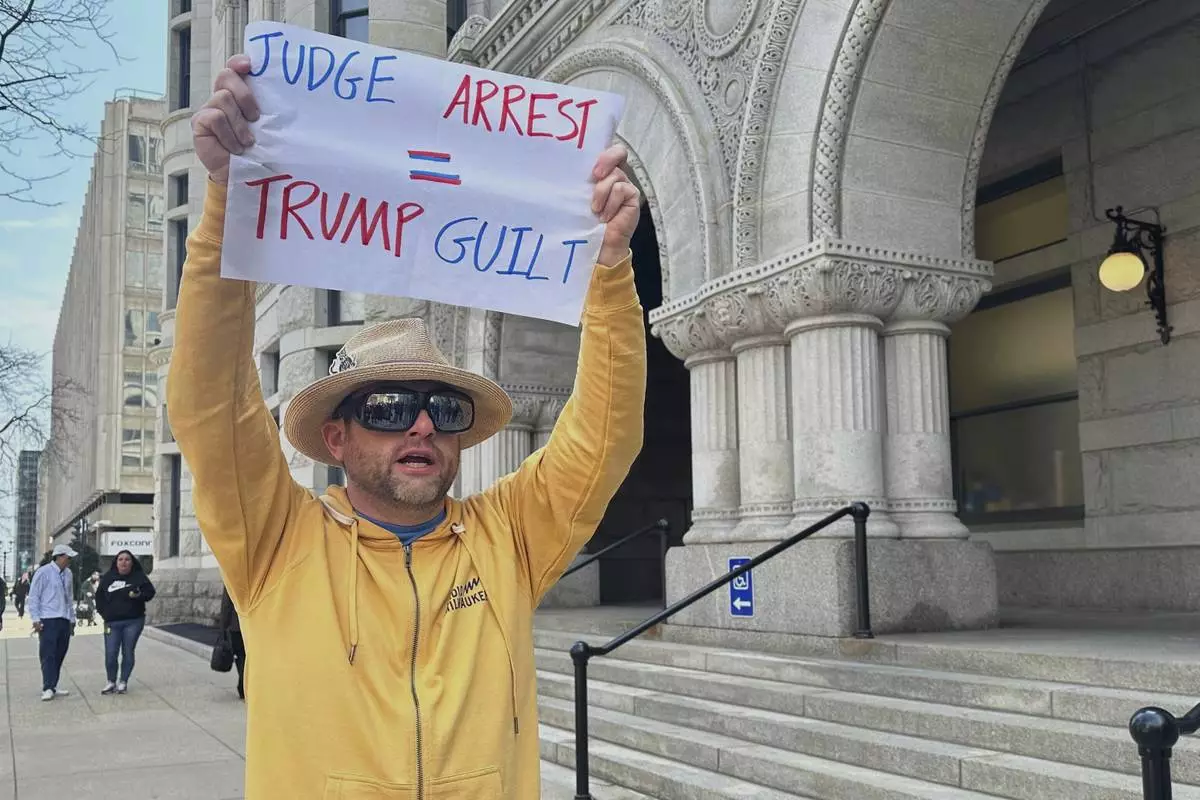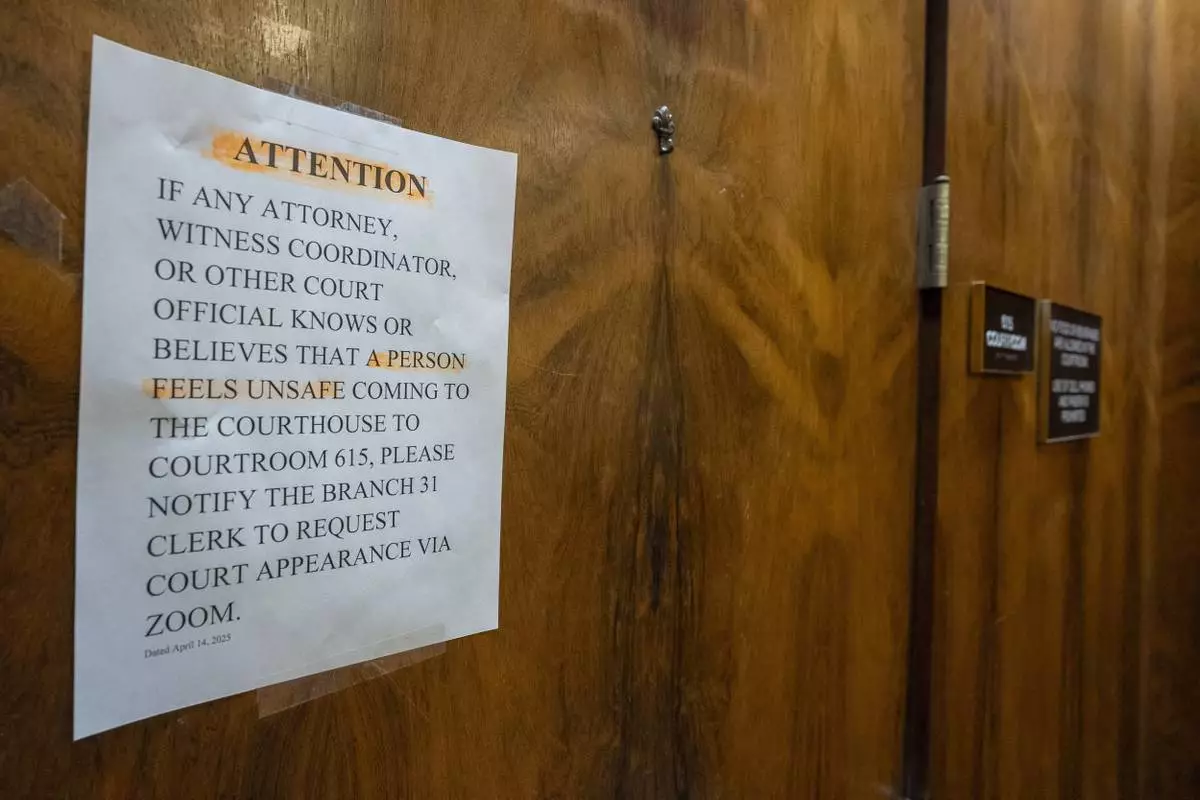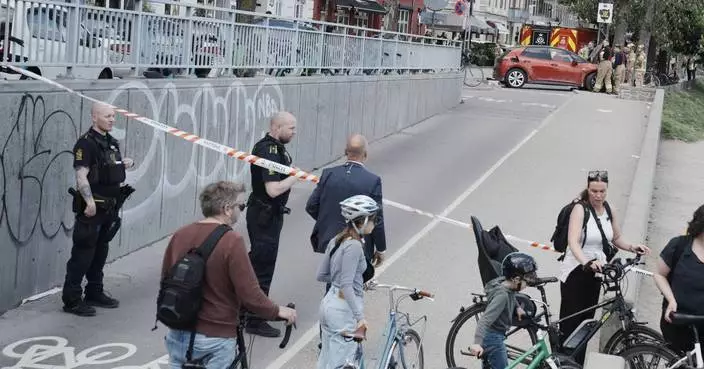NEW YORK (AP) — Attorneys for hip-hop producer Sean “Diddy” Combs asked a federal judge in New York on Wednesday to delay his May 5 sex-trafficking trial by two months so they can better prepare a defense.
The lawyers said in a letter to Judge Arun Subramanian that prosecutors have been slow to turn over some potential evidence for review, making it difficult to be ready in three weeks.
Prosecutors oppose the request, the lawyers said. A spokesperson for prosecutors declined comment.
Subramanian wrote in an order responding to the delayed-trial request that he will address the issue during a hearing scheduled for Friday.
Pending the conference, the judge wrote, both sides should proceed as if the early May trial remains in place.
Combs, 55, has been held without bail since his September arrest. He has pleaded not guilty to multiple crimes that prosecutors say occurred over a two-decade period.
In their letter, defense lawyers cited a failure by prosecutors to turn over potential trial evidence in a timely matter, including materials relating to a superseding indictment returned by a grand jury earlier this month.
For instance, the lawyers wrote, prosecutors have said they will not meet a Wednesday deadline to turn over exhibits and a witness list.
Some evidence yet to be turned over includes materials related to a count in the indictment that carries a 15-year mandatory minimum prison sentence if a conviction is secured, the lawyers said.
As a result, they wrote: “We cannot, in good conscience, go to trial on the scheduled date.”
They added: “This is a problem that the government has created, yet it opposes our reasonable request.”
Prosecutors say Combs coerced and abused women for years as he used his “power and prestige” as a music star to enlist a network of associates and employees to help him while he silenced victims through blackmail and violence, including kidnapping, arson and physical beatings.

FILE - Sean Combs arrives at the Pre-Grammy Gala And Salute To Industry Icons at the Beverly Hilton Hotel on Saturday, Jan. 25, 2020, in Beverly Hills, Calif. (Photo by Mark Von Holden/Invision/AP, File)
SEATTLE (AP) — Inside a Virginia courthouse, three immigration agents in plainclothes — one masked — detained a man who had just had misdemeanor assault charges dismissed. They declined to show identification or a warrant to the man, and one threatened to prosecute horrified witnesses who tried to intervene, cellphone video shows.
In North Carolina, U.S. Immigration and Customs Enforcement confirmed it arrested four people at a county courthouse, according to local media reports, prompting the sheriff to express concerns about a lack of communication from the agency as well as about disruption to court proceedings.
Inside a courthouse in New Hampshire, a pair of agents tackled a Venezuelan man outside an elevator, flattening an older man with a cane in the process. And in Boston, an ICE agent detained a man who was on trial. A municipal court judge held the agent in contempt over the arrest, but the order was later overturned by a federal judge.
The flurry of immigration enforcement at courthouses around the country in the past month — already heavily criticized by judicial officials and lawyers — has renewed a legal battle from President Donald Trump's first term as advocates fear people might avoid coming to court.
It's drawing further attention with last Friday's arrest of Judge Hannah Dugan in Wisconsin. The FBI arrested Dugan on charges that she tried to help a defendant evade waiting federal agents by letting him leave her courtroom through a jury door.
“Some of these judges think they are beyond and above the law and they are not, and we’re sending a very strong message today,” Attorney General Pam Bondi said during an appearance on Fox News after the arrest.
Lena Graber, senior staff attorney with the Immigrant Legal Resource Center, told The Associated Press that she’s aware of at least a dozen recent immigration arrests at courthouses around the country.
“The historical context is really important,” Graber said. “This is something that was not part of ICE’s practice until the first Trump administration, and people were shocked.”
ICE long had a general practice of not arresting people at certain locations, including schools, hospitals, courthouses and churches. But during the first Trump administration, the agency adopted a policy explicitly allowing courthouse arrests of “specific, targeted aliens,” arguing that it was especially important in “sanctuary” jurisdictions where officials do not notify the agency before releasing immigrants facing deportation cases.
Courthouse immigration arrests jumped, drawing condemnation from judicial officials and legal organizations, as well as lawsuits from some states and the adoption of bills seeking to block the practice.
Dugan’s case is similar to one brought during the first Trump administration against a Massachusetts judge who was accused of helping a man sneak out a back door of a courthouse to evade a waiting immigration officer. A judge in Oregon faced similar allegations — though not an arrest or criminal charges -- in 2017.
The chief justices of some states, including California and Washington, asked ICE to stop, saying fear of arrest would keep crime victims and witnesses from showing up in court. In one well-publicized case, agents in Texas arrested a woman while she was obtaining a protection order against an alleged abuser.
The Biden administration imposed restrictions on courthouse immigration arrests, but they were quickly undone when Trump returned to office this year.
Under guidance issued Jan. 21, ICE officials are allowed to carry out immigration enforcement in or near courthouses if they believe someone they’re trying to find will be there. Whenever possible, the agents are supposed to make arrests in nonpublic areas, to coordinate with courthouse security and to avoid disrupting court operations.
Teodoro Dominguez Rodriguez, identified by ICE as a Honduran national, was confronted and arrested by immigration enforcement officers after he left a Charlottesville courtroom April 22. It was the second immigration arrest at the court that day.
The first wasn’t recorded, but as word spread, Nick Reppucci, who heads the public defender’s office there, scrambled staff to the courthouse. They captured Dominguez Rodriguez’s arrest on camera.
The three agents, one in a balaclava-style ski mask, ignored demands from observers to show badges or a warrant, the video shows. One agent threatened to have the U.S. attorney’s office prosecute two women who tried to place themselves between the agents and Dominguez Rodriguez.
Sherriff Chan Bryant confirmed that the agents had shown badges and paperwork to a bailiff beforehand. But Albemarle County Commonwealth’s Attorney Jim Hingeley criticized the officers for failing to identify themselves while making the arrest.
“Bystanders, or the person being arrested, might have violently resisted what on its face appeared to be an unlawful assault and abduction,” Hingeley said in an emailed statement.
Reppucci decried the “normalization happening here, where federal law enforcement are at this point grabbing people without being required to show that person any form of identification.”
In a written statement, ICE stood behind the actions of the officers, “who are trained to assess and prosecute apprehensions in a manner that best ensures operational success and public safety.”
The Associated Press was unable to locate relatives who might speak on Dominguez Rodriguez’s behalf, and it was not clear if he had an attorney representing him.
Repucci stressed the impact arrests like Dominguez Rodriguez's could have on people coming to court, a place he said is supposed to be where “disputes are resolved in an orderly, peaceful manner.”
“People in divorce proceedings, people with civil disputes, custody hearings, potential witnesses, all are going to be less likely to come to court,” he said.
Claire Rush in Portland, Oregon, and Rebecca Santana in Washington contributed to this report. Hollingsworth reported from Mission, Kansas.

FILE - People gather to demonstrate the arrest of Judge Hannah Dugan, outside the Federal courthouse in Milwaukee, April 25, 2025. (AP Photo/Devi Shastri, File)

FILE - A sign is posted outside of county Judge Hannah Dugan's courtroom at the Milwaukee County courthouse, April 25, 2025, in Milwaukee. (AP Photo/Andy Manis, File)





















































